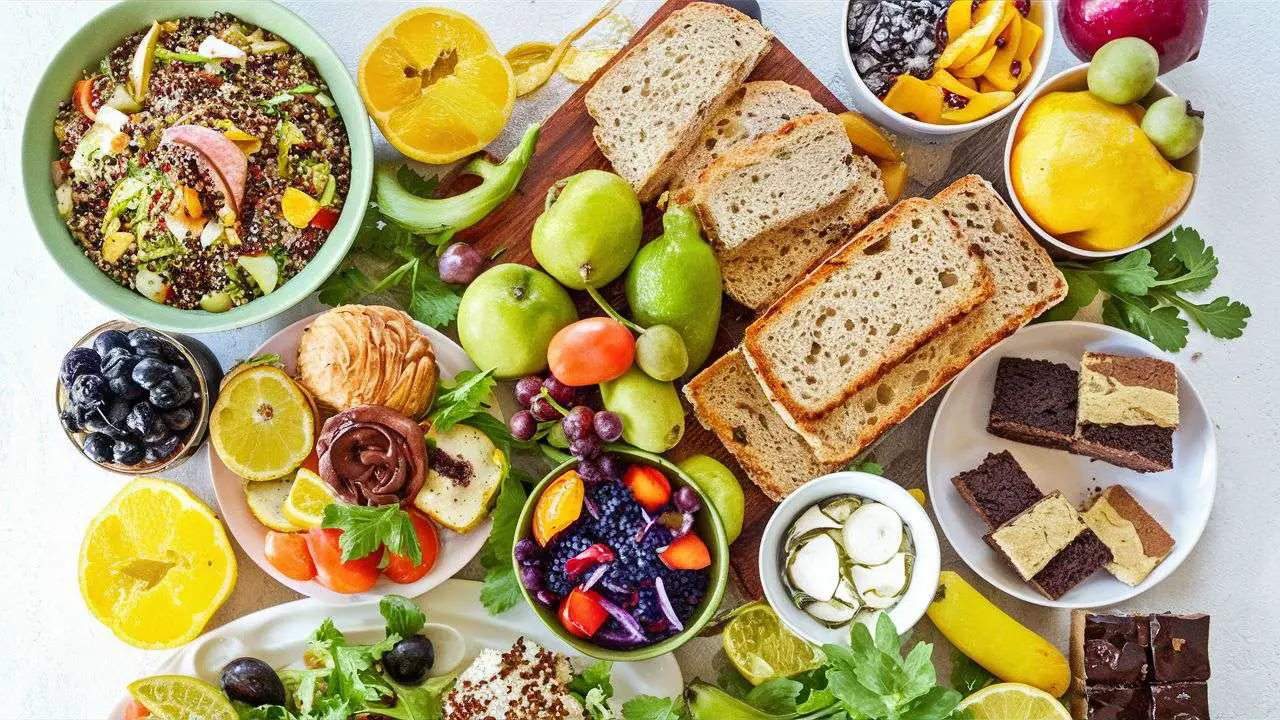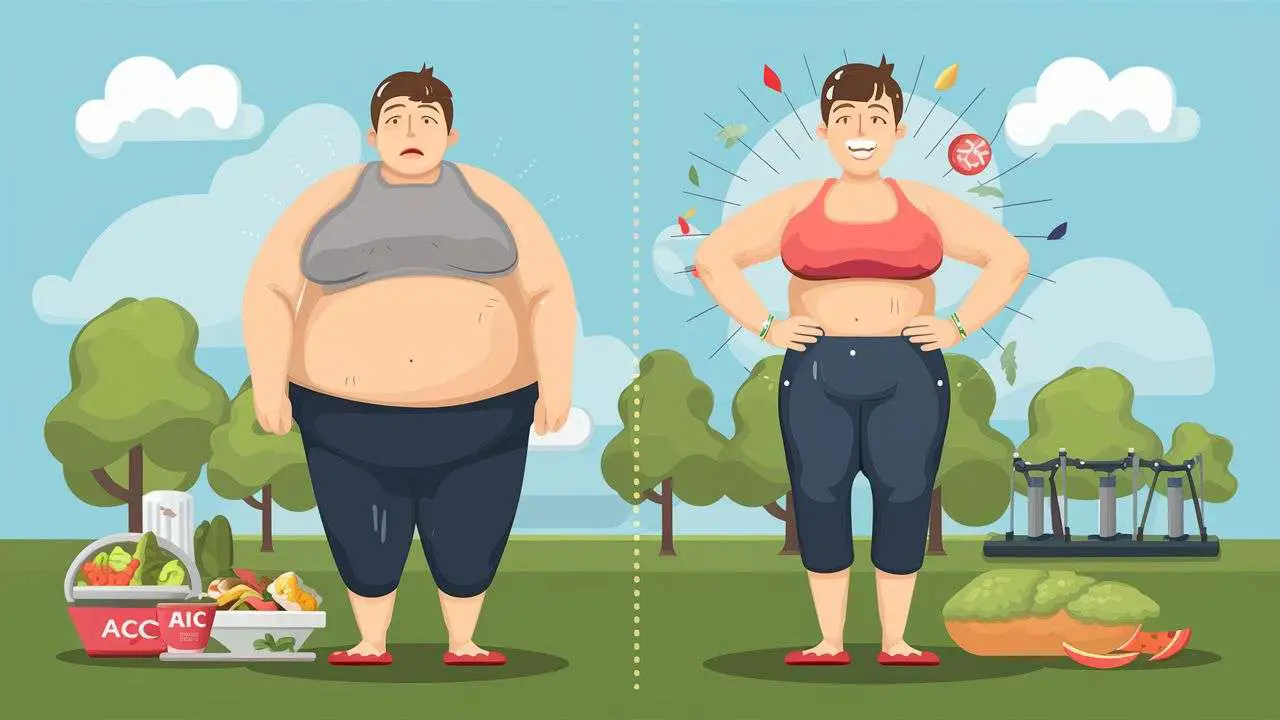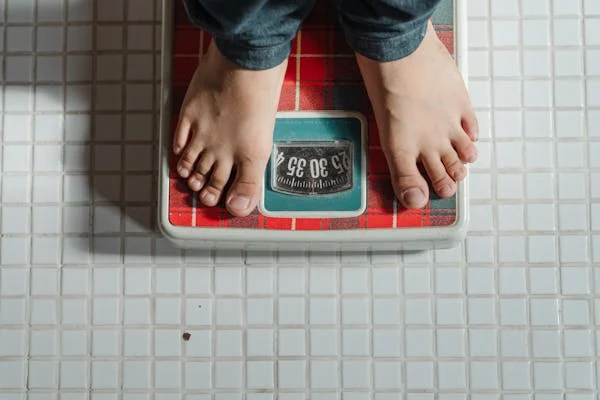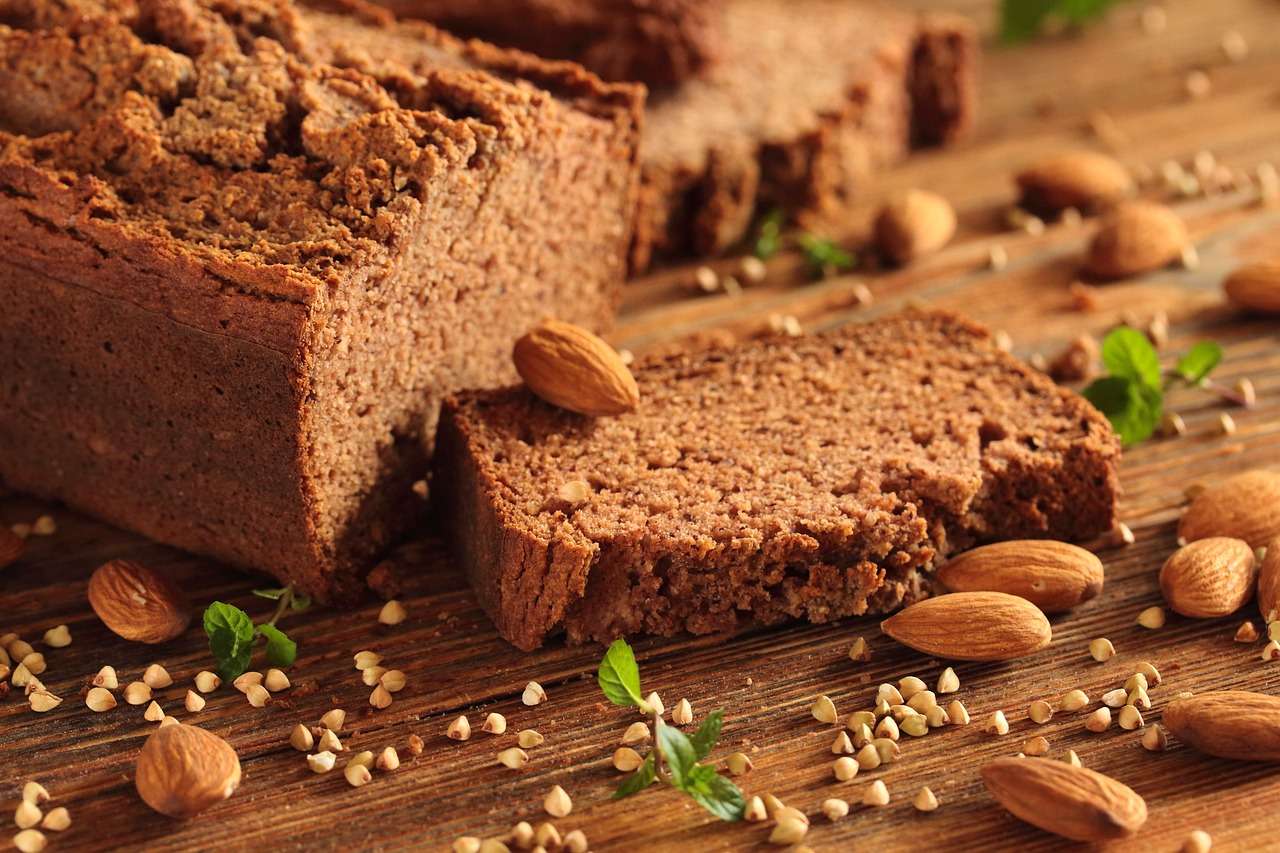Gluten is a protein found in wheat, barley, and rye, which form sticky and stretchy dough when processed and cooked. For some people, gluten can cause digestive discomfort and even lead to serious health problems, such as autoimmune disease. People who avoid gluten do so for two major reasons:
Celiac Disease: Gluten ingestion causes the immune system to assault the small intestine in people with celiac disease, an autoimmune illness. Bloating, diarrhea, exhaustion, and weight loss are possible symptoms. Celiac disease can cause major health issues if left untreated.
Gluten Sensitivity: Individuals with gluten sensitivity do not have the intestinal damage associated with celiac disease, but they do feel digestive discomfort after consuming gluten, such as bloating, gas, and abdominal pain.

What to Avoid in a Gluten-free Vegetarian Diet:
Following a gluten-free diet means eliminating foods containing wheat, barley, and rye.expand_more This includes:
-
-
- Grains: Wheat bread, pasta, cereals, crackers, bulgur, spelled
- Baked Goods: Cookies, cakes, muffins, pastries made with wheat flour
- Processed Foods: Many processed foods like soups, sauces, condiments, and snacks may contain hidden gluten as an added ingredient or thickener.expand_more
-
What to Eat in a Gluten-free Vegetarian Diet:
Fortunately, there are plenty of naturally gluten-free options:

-
- Fruits and Vegetables: All fresh, frozen, or canned fruits and vegetables are naturally gluten-free.expand_more
- Meat, Poultry, and Seafood: These are naturally gluten-free, but be cautious of marinades or coatings that may contain gluten.
- Beans, Legumes, and Nuts: Lentils, beans, chickpeas, peanuts, almonds, and other nuts and seeds are a great source of protein and fiber and are naturally gluten-free.expand_more
- Gluten-Free Grains: Options like quinoa, brown rice, millet, oats (if tolerated by some people with gluten sensitivity), and sorghum can be incorporated into a gluten-free diet.
Why Go Gluten-Free Vegetarian for Weight Loss?
Processed foods like sugary cereals, pastries, and snack bars frequently contain gluten. When you cut out gluten, your body will naturally turn to whole foods that are often lower in fat, sugar, and calories.

Legumes, beans, tofu, and tempeh are just a few examples of vegetarian protein sources that are high in protein and fiber, which are both known to prolong feelings of fullness.

This lessens cravings and aids with controlling caloric intake. Digestive problems such as gas and bloating can result from gluten sensitivity. Reducing these bothersome sensations and considerably improving digestion are two benefits of cutting out gluten.
Celiac disease and gluten sensitivity can be improved with diet:
The gluten-free diet was originally developed as a treatment for people with celiac disease.
When you have celiac disease, gluten triggers your immune system to attack and damage the lining of your small intestine. Eventually, this can cause permanent damage to parts of the small intestine, preventing the body from absorbing enough nutrients from the food it eats.

People with untreated or undiagnosed celiac disease are often nutritionally deficient and may be at increased risk for problems such as osteoporosis if gluten is not removed from their diet. The good news is that you can treat celiac disease with a gluten-free diet.
Symptoms of celiac disease manifest in digestive (diarrhea, constipation, abdominal pain, bloating), hormonal issues (low thyroid levels and infertility), and systemic issues (fatigue and brain fog). These symptoms tend to lessen once you start a gluten-free diet, although a small percentage of people have no symptoms.
Get comprehensive nutrition:
Once you learn how to eliminate gluten from your diet, you can turn your attention to the gluten-free foods you can eat and how to plan your overall diet and nutrition. If you pay attention to meal balance and food variety, a gluten-free diet can be a very healthy diet.
There are many unprocessed foods that are naturally gluten-free, such as fresh fruits and vegetables, fresh meat, poultry, and fish; nuts and seeds; dairy products such as milk, yogurt, most cheeses, cottage cheese, and eggs; and juice. There are also plenty of gluten-free grains, including rice, corn, quinoa, sorghum, cassava, buckwheat and millet.

These are great staples. Sticking to gluten-free whole foods is a balanced, healthy diet that also happens to be gluten-free. Cooking at home may not work for everyone in your family, but that’s okay, there are still ways to follow a gluten-free diet.
For example, many frozen foods and canned foods are gluten-free. To make sure you’re buying gluten-free products, it’s important to learn to read ingredient labels.
Flexibility to choose the food we like:
Whether you are a vegetarian or follow the DASH or Mediterranean diet, you should have no difficulty implementing a gluten-free diet while still maintaining your dietary preferences.
For example, many vegetarians follow a gluten-free diet, which is perfectly fine because fresh fruits and vegetables are considered naturally gluten-free. Most nuts and legumes are also gluten-free, so meeting your protein needs is easy when you follow both a gluten-free and vegetarian diet.
Note: The DASH diet (Dietary Approaches to Stop Hypertension) is a way to relieve high blood pressure through dietary approaches.
Can accommodate certain dietary restrictions:
A gluten-free diet is a way of eating that is flexible enough to allow us to adhere to our own food preferences at the same time. So if you have other health-related dietary restrictions (besides your need to go gluten-free), adjustments can be made appropriately.
One of the more common dietary restrictions is dairy. That’s because many people diagnosed with celiac disease also have lactose intolerance, a condition in which damage to the small intestine results in the inability to digest lactose, a type of sugar found in dairy products.
Therefore, these people need to follow a gluten-free diet, and they also need to avoid milk-based dairy products in their diet. They need to stay away from milk, yogurt, cheese, ice cream, and other products containing milk.
Symptoms of lactose intolerance are similar to those of celiac disease and non-celiac gluten sensitivity: they include diarrhea and gas. Therefore, to determine if you are lactose intolerant, you need to closely monitor your body’s response to food. Because in some cases, the reaction may be due to accidental exposure to gluten rather than dairy.
Health Benefits of a Gluten-Free Diet:
1. Improve digestion: A gluten-free diet can reduce the burden on the gastrointestinal tract and help improve digestive function. For people with intestinal or stomach problems, a gluten-free diet can help relieve symptoms and improve quality of life.
2. Reduced risk: Studies show that a gluten-free diet can help reduce the risk of diabetes, obesity and cardiovascular disease. For people with autoimmune diseases, a gluten-free diet can help relieve symptoms and improve quality of life.
3. Improves mental health: In addition to its physical health benefits, a gluten-free diet is also thought to improve mental health. One study found that a gluten-free diet was associated with lower symptoms of anxiety and depression.
4. Boosts immunity: A gluten-free diet is rich in nutrients and antioxidants, which help strengthen the body’s immunity and prevent infections.
How to implement a gluten-free diet:
1. Know what’s in your food: When buying food, check food labels carefully to see if they contain gluten. Avoid foods containing wheat, barley, or rye.
2. Increase dietary fiber: A gluten-free diet can easily lead to insufficient dietary fiber intake, so attention should be paid to increasing the intake of vegetables, fruits, and whole grains to supplement sufficient dietary fiber.
3. Find alternatives: To meet taste and nutritional needs, look for gluten-free alternatives such as rice flour, cornmeal, buckwheat, etc.
4. Consult a Professional: For people with serious health problems or special dietary requirements, it’s best to consult a nutritionist or doctor to develop a gluten-free eating plan that’s right for you.
Conclusion:
gluten-free vegetarian diet plan offers a powerful combination of benefits. By eliminating processed foods and embracing the satiating power of plant-based proteins and fiber, you can achieve lasting results. This blog post has equipped you with the foundation to explore a gluten-free vegetarian diet plan for weight loss. Click to learn more.
FAQs:
- Is a gluten-free vegetarian diet right for everyone?
Not necessarily. It’s ideal for those with celiac disease, gluten sensitivity, or looking to combine weight loss with a plant-based approach. Consulting a doctor before significant dietary changes is recommended.
- Will I lose weight quickly on this plan?
Weight loss depends on individual factors and calorie intake. However, eliminating processed foods and focusing on protein and fiber can promote healthy weight loss.
- Isn’t it hard to get enough protein on a vegetarian diet?
No! Beans, lentils, tofu, tempeh, nuts, and seeds are all excellent sources of vegetarian protein.
- Do I have to give up all my favorite foods?
There are many delicious gluten-free vegetarian alternatives! Explore new recipes and discover a world of flavorful plant-based options.
- Where can I find more information and recipes?
This blog post offers a starting point! Many resources online provide recipes, tips, and meal plans specifically designed for a gluten-free vegetarian diet.
